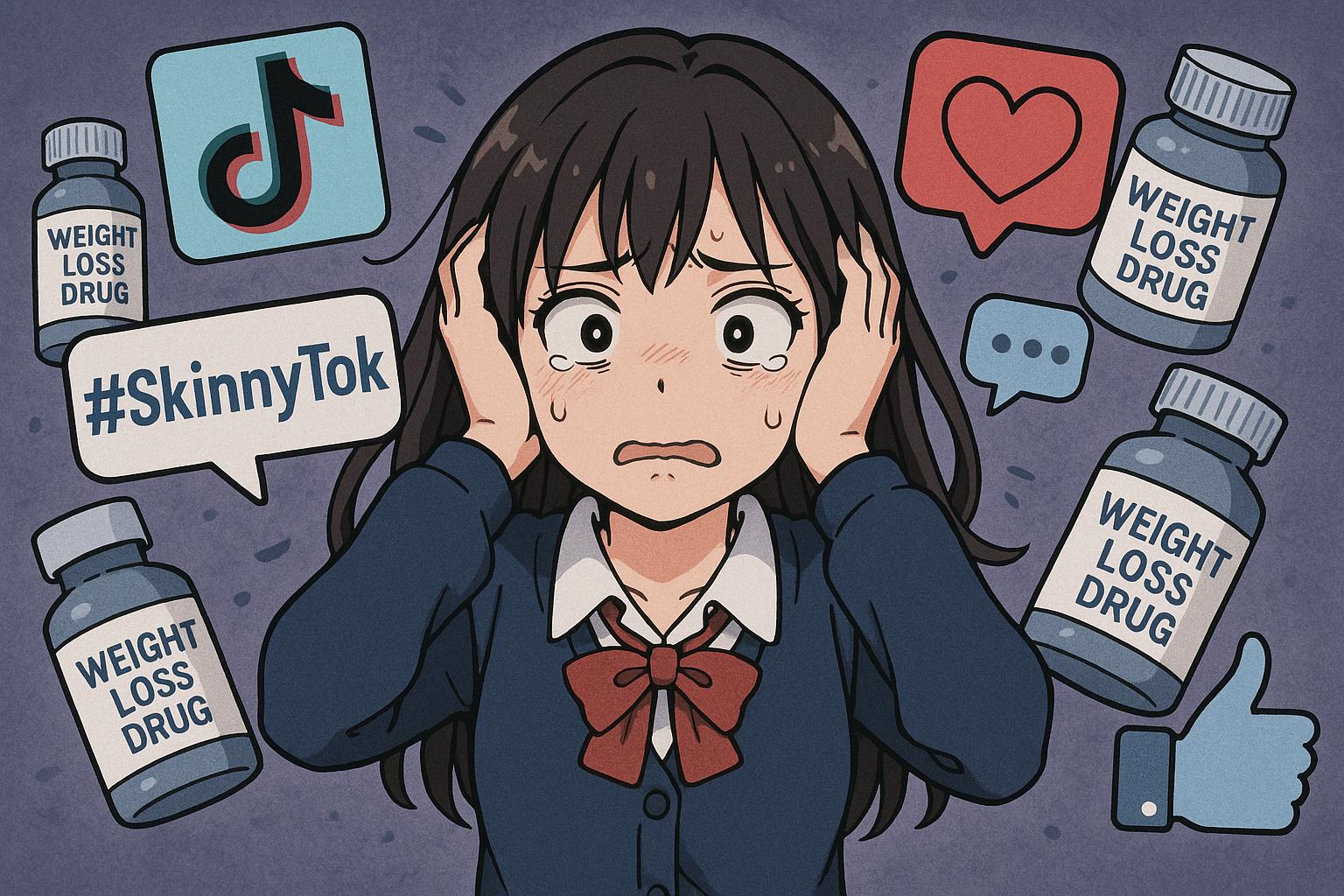The emergence of #SkinnyTok on social media platforms has ignited significant concern among mental health advocates and body positivity supporters. Jenny Stevens, the deputy features editor at the Guardian, recently highlighted this dangerous trend, noting a surge of influencers chronicling extreme weight-loss journeys on TikTok. In an interview with Helen Pidd, Stevens expressed her alarm at the impact this content has on young viewers, stating, “I’ve looked through that hashtag and I think, wow, some of these people are really, really unwell.” The TikTok algorithm, according to her, seems to thrive on sensationalised narratives, pushing such material to impressionable audiences, thus exacerbating issues surrounding body image and disordered eating.
This environment has been intensified by the rising popularity of weight-loss drugs such as Ozempic and Wegovy, which influencers are now promoting as shortcuts to idealised body shapes. Reports have surfaced detailing how these medications, while effective for some, come with significant risks and ethical dilemmas when marketed on social media. For instance, influencers like Kelsey and Ashley have shared their personal journeys with these drugs, but the conversation often glosses over the potential health implications inherent in their use. The glamourisation of such medical solutions raises pressing questions about responsibility regarding content shared online and whether creators are fully aware of the consequences their endorsements may carry.
The re-emergence of strict ideals of thinness has cyclically affected perceptions of health and fitness. Gina Tonic, author of "Greedy Guts," connected the contemporary fixation on thinness to broader societal shifts triggered by the Covid-19 pandemic. In her view, the pandemic brought health to the forefront, reinforcing associations between thinness and well-being. She stated, “Fatness is automatically associated with being unhealthy and has been for decades,” indicating a troubling narrative that sidelights those who do not fit the conventional mould of health. The fixation on weight has impacted not just individuals’ self-image but has also led to a diminished visibility of the body positivity movement, which once championed diversity in body shapes and sizes.
The psychological repercussions of the climate surrounding #SkinnyTok are troubling. Recent studies have indicated that consistent exposure to such content can lead to poor body image and heightened anxiety among users, particularly adolescents. Various articles articulate concerns that the elevation of an unrealistic 'thin' ideal fosters a toxic diet culture. This raises vital considerations for parents and educators who grapple with how to address these pressures in their communities. Promoting positive body image and encouraging discussions around mental health are crucial in counteracting the damaging narratives propagated by trends like #SkinnyTok.
Social media platforms are beginning to recognise their role in perpetuating these harmful trends. TikTok has initiated a crackdown on content that glorifies disordered eating, aiming to enforce new community guidelines that prioritise mental well-being. While these steps are commendable, the effectiveness of such measures requires further scrutiny as many creators attempt to navigate the fine line between sharing personal stories and inadvertently promoting unhealthy behaviours.
In conclusion, the dialogue surrounding #SkinnyTok is multifaceted, encompassing themes of health, body image, and media responsibility. The promotion of extreme thinness and weight-loss solutions continues to pose a significant risk, calling for concerted efforts from individuals, social media platforms, and society as a whole to champion body positivity, diverse beauty standards, and mental health awareness in the digital age.
Reference Map:
Source: Noah Wire Services
